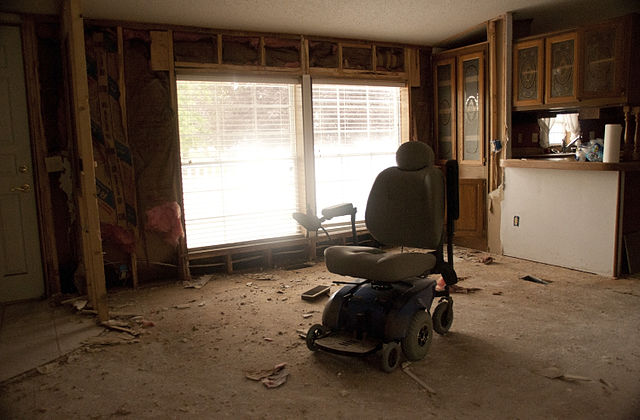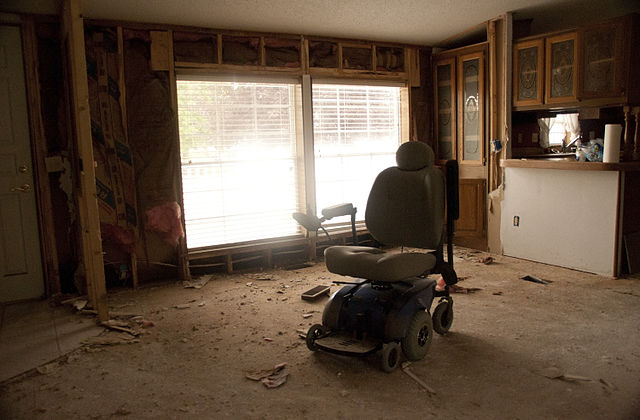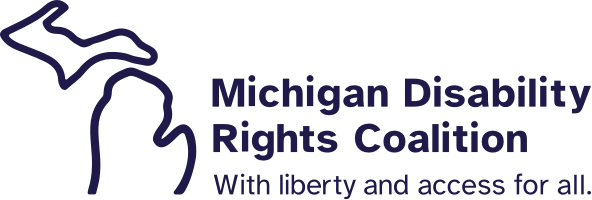AT for Emergency Prep and Response: Overview of the Series
Sunday, July 22, 2018


A Damaged Power Chair in a Flood Damaged House
This is the first of a number of blog posts on keeping ourselves safe and enabling our return to normal when our lives are churned and overturned by emergencies and disasters.
Although hurricanes and wildfires in the border states have gotten the most press coverage, the Midwest, including Michigan, have their share of regional emergencies and disasters, including flooding, ice storms, wildfires, tornadoes, powerful thunderstorms, blizzards, and so on.
People with disabilities in Michigan share the same concerns for preparation and response that occur in those emergencies that receive more press coverage.
This post is an introduction to these issues. Future posts will cover the issues in more depth.
For our community, emergencies and disasters pose additional barriers and problems to getting ready for, robustly responding to, and ultimately recovering from, disaster:
- Preparing for disaster requires a different mindset and a much more serious focus for the disability community. I will use the metaphor of the GoKit to frame the issues of preparation for disasters in our community.
- Our community can’t count on our social networks to automatically have the requisite skills to support us during a disaster. We have to work to build in those skills (and the redundancy of those skills) so they are available during the disaster.
- Although Emergency Shelters have dramatically improved their accessibility and accommodation resources in recent years, we all know that these are general resources, not necessarily customized to our individual needs. We need to take steps to assure that we have what we need when we need it, wherever we might end up.
- Our community, more than most others, needs to think about the organizations and services that we use in our ordinary life and whether those same services are prepared to continue their support in a significant emergency.
- We must take responsibility for building emergency preparation and response into our personal networks as a normal topic for discussion and development among our friends and allies in the disability community,
- Over the longer term, we must assertively collaborate with emergency response services long before emergencies occur to build both an understanding of our community’s needs and to deepen our community’s understanding of the how and the why of emergency preparation in the regions where we live.
I hope that readers will consider sharing their experiences with significant emergencies, how they coped, and the lessons that they learned as these posts roll out.

